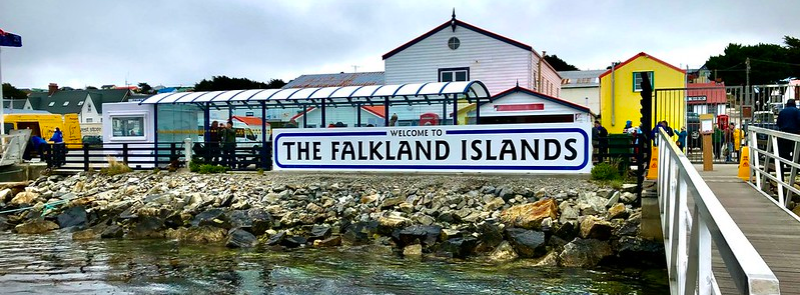
When It Occurs
Every August 14th
Timeline
Days Passed (923)
# Hashtags
#FalklandsDay #BritishIdentity
Falklands Day is celebrated annually on August 14th in the United Kingdom and the Falkland Islands, commemorating the day in 1833 when British rule was re-established on the islands. It is a significant day in the history of the Falkland Islands, a British Overseas Territory located in the South Atlantic Ocean, known for its association with the 1982 Falklands War.
Historical Background
The history of the Falkland Islands is marked by competing claims from various countries, including Spain, France, and Argentina, as well as the UK. The islands were first sighted by European explorers in the 16th century, but it wasn’t until the early 19th century that they began to take on geopolitical importance. The UK established its first settlement on the islands in the 1760s, but Spain and later Argentina also laid claim to the territory.
The most critical moment came in 1833 when British forces regained control of the islands, expelling an Argentine garrison and establishing British sovereignty over the territory. This event is commemorated annually on Falklands Day, a day that recognizes the importance of the islands’ British identity and sovereignty.
Falklands Day vs. Liberation Day
It's important to distinguish between Falklands Day (August 14th) and Liberation Day (June 14th), another major observance in the Falkland Islands and the UK. While Falklands Day celebrates the British re-establishment of rule in 1833, Liberation Day marks the end of the Falklands War in 1982, when British forces liberated the islands from Argentine occupation. Both events are crucial in the islands' history, but they commemorate different periods of British-Falkland relations.
The Falklands War and its Legacy
The Falklands War in 1982 was a defining moment in the modern history of the islands and their relationship with the UK. The conflict arose after Argentina invaded the Falklands in an attempt to claim sovereignty, citing historical ties to the territory. The British government, led by Prime Minister Margaret Thatcher, responded by deploying a task force to the South Atlantic, and after a brief but intense conflict, the islands were recaptured by British forces on June 14, 1982. This date is commemorated as Liberation Day, while Falklands Day continues to focus on the earlier event of 1833.
Celebrations and Traditions
In the Falkland Islands, Falklands Day is a public holiday, and it is observed with various celebrations, including:
- Parades: Communities often gather for parades in the capital, Stanley, and other settlements. The parade usually involves local organizations, military personnel, and civilians coming together to celebrate the islands’ British heritage.
- Civic Ceremonies: There are formal ceremonies to mark the day, often attended by local leaders, government officials, and representatives of the British government or military. These ceremonies pay tribute to the islanders’ resilience and the strong relationship with the UK.
- Cultural Events: The day is also an opportunity for islanders to celebrate their unique culture, with activities such as traditional music, dancing, and feasts.
- Historical Reflections: Falklands Day also encourages reflection on the history of the islands and the continued importance of British sovereignty.
Although not widely celebrated in the United Kingdom itself, the day holds particular significance for those with connections to the islands, including members of the British military who served in the Falklands War, their families, and Falkland Islanders living in the UK.
Political Importance
The observance of Falklands Day continues to underscore the political importance of the islands, particularly in light of Argentina's ongoing claims of sovereignty. Despite the international dispute, the Falkland Islands have remained a self-governing British Overseas Territory, and the majority of islanders consistently express their desire to remain under British rule.
The celebration of Falklands Day serves as a reminder of the islanders' loyalty to the UK and their enduring British identity. It also emphasizes the islands' strategic and economic significance, particularly with regard to fishing rights, oil exploration, and the growing tourism industry.
Conclusion
Falklands Day is a day of national pride for the Falkland Islanders, celebrating their British heritage and the historical event that reaffirmed British sovereignty over the territory in 1833. While Liberation Day may receive more attention due to the recent history of the 1982 war, Falklands Day remains an important observance that connects the islanders to their British roots and serves as a reminder of the ongoing relationship between the UK and the Falkland Islands.


